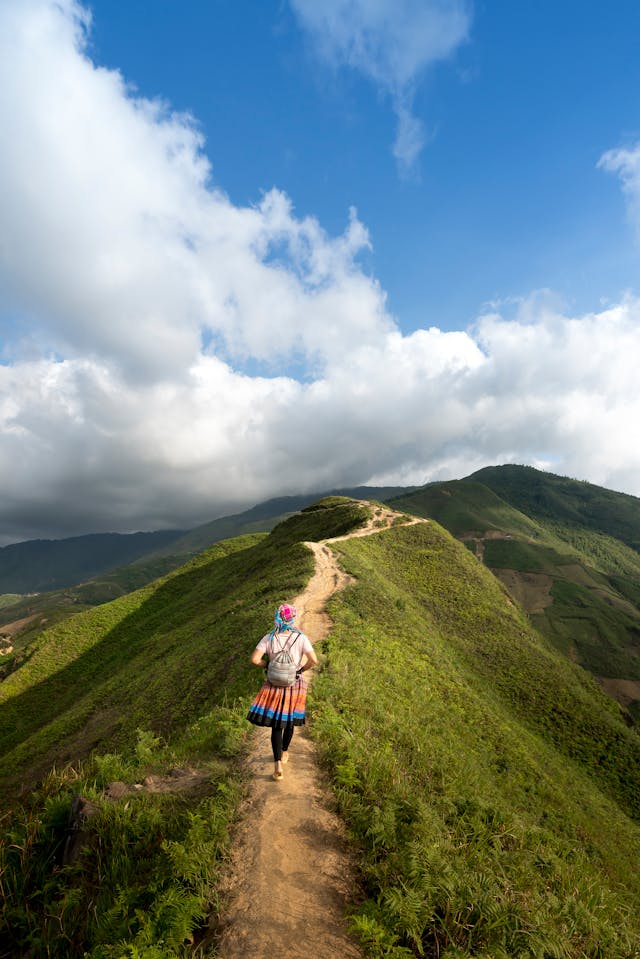Write Us: hello@ali5.org
Ultimate Guide to Sustainable & Eco-Friendly Travel
Want to travel without harming the planet? This friendly guide walks you through simple, realistic ways to enjoy eco-friendly travel while making your adventures even more meaningful.

Let’s be honest—travel is incredible. It opens your eyes, teaches you new things, and gives you stories to tell for a lifetime. But if you’ve ever flown across the world, stayed in a resort, or seen plastic washing up on a tropical beach, you’ve probably wondered: “Is my travel hurting the places I love?”
The truth is: tourism can take a toll. Flights contribute to carbon emissions. Hotels waste energy. And when too many people visit the same place, it can change that destination for the worse.
But here’s the good news: sustainable travel isn’t about giving everything up. You don’t need to sleep in a tent or skip planes altogether. It’s about being more thoughtful, making better choices, and understanding that every small step matters.
This guide is here to help you travel in a way that’s kinder to the planet, more respectful to communities, and often even more enjoyable.
🌍 What Is Sustainable Travel, Really?
In simple terms, sustainable travel means being mindful of the impact you leave behind on the environment, the local people, and the culture.
It’s about:
-
Reducing waste and emissions.
-
Supporting local economies.
-
Respecting the places you visit.
It doesn’t mean being perfect. It just means doing your best, choosing better over convenient when you can.
✈️ Start With How You Get There
We all know flying isn’t great for the environment. But sometimes, it’s necessary. If you need to fly:
-
Pick non-stop flights: Takeoffs and landings use the most fuel, so fewer stops = less impact.
-
Fly economy: More passengers per plane means fewer emissions per person.
-
Offset your carbon: Some airlines or independent sites let you donate to green projects that balance out your flight’s carbon footprint.
Bonus points: If you can take a train, bus, or carpool instead, it’s usually a greener (and more scenic) choice.
🏡 Choose Where You Stay Wisely
Where you sleep can say a lot about your travel values. Look for places that:
-
Use renewable energy or eco-friendly practices (like solar power or water-saving systems).
-
Support the local economy—think guesthouses, boutique stays, or family-run hotels.
-
Avoid waste some offer refillable toiletries, water stations, and recycling bins.
And honestly? These places usually feel warmer, more personal, and more connected to the destination.
🍽️ Eat Like You Care (Because It Matters)
What you eat—and where you eat—makes a big difference.
-
Support local restaurants instead of global chains.
-
Try plant-based meals now and then; they tend to be more eco-friendly.
-
Buy local produce and street food—it’s often fresher and supports real people, not corporations.
Also, carry your own reusable water bottle, straw, and shopping bag. It’s a small move that prevents a ton of waste.
🎒 Pack Lighter, Smarter, Greener
Believe it or not, heavy bags equal heavier planes (which burn more fuel). So pack lighter when you can.
Eco-friendly packing tips:
-
Bring reusable items: water bottle, tote bag, bamboo utensils.
-
Use solid toiletries: shampoo bars, conditioner bars, and toothpaste tablets reduce plastic.
-
Choose clothes you can rewear and mix-match instead of packing your whole closet.
It’s better for the planet—and easier on your back.
🤝 Travel Respectfully, Not Just Sustainably
Sustainability isn’t only about the planet—it’s about people, too.
-
Learn a few words in the local language. A simple “hello” or “thank you” can open doors.
-
Ask before taking photos of people or their homes.
-
Don’t treat places like a backdrop. That quiet temple or village is someone’s real home.
Try to give more than you take—buy from artisans, tip local guides, and listen to the stories of the people you meet.
This kind of travel feels deeper, richer, and more human.
🗺️ Avoid the Crowds (and Do Some Good)
Over-tourism can overwhelm beautiful places. The beaches get trashed, locals get priced out, and the magic gets lost.
Here’s what you can do:
-
Visit lesser-known destinations or explore the popular ones during off-season.
-
Join volunteer programs or community-based tourism if you have the time.
-
Hike that quiet trail. Visit that small-town museum. Go where the buses don’t.
Not only is it better for the place, but it often makes for a much more peaceful, meaningful trip.
📸 Rethink the Way You Share
Social media can be a double-edged sword. Sharing travel photos is fun, but it can also feed over-tourism or turn sacred places into “photo ops.”
Before you post, ask yourself:
-
Am I respecting this place and its people?
-
Is this photo authentic, or staged to impress?
Be real. Be thoughtful. Show the world how travel can be beautiful and responsible.
🌱 The Takeaway: Travel Gently, Travel Honestly
Sustainable travel isn’t about being perfect. It’s not about giving up all fun, flying guilt-ridden, or judging others.
It’s about doing what you can, when you can.
It’s about slowing down, being curious, asking questions, and remembering that the world isn’t just your playground—it’s everyone’s home.
And honestly? This kind of travel feels better. It’s slower, more personal, and more rewarding. You come home not just with photos, but with stories you’re proud to tell.
So next time you plan a trip, ask yourself: How can I do this a little better?
And know that every little choice adds up.







